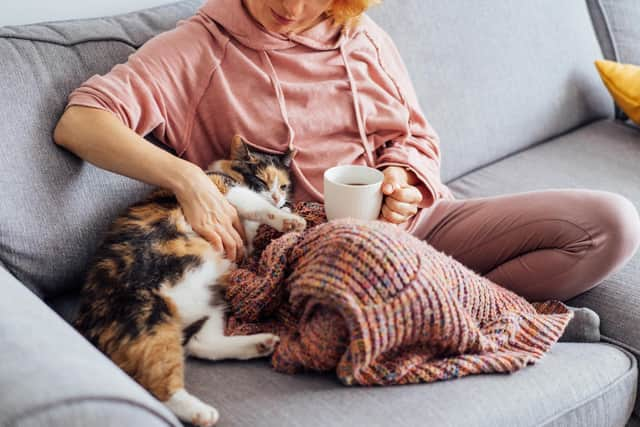Six ways to keep warm this winter


It’s natural to be concerned about rising energy costs, but fortunately there are many ways to lower heating costs without putting your health at risk, such as:
1. Place a blanket over yourself
Hot air rises, so keep it from escaping by trapping it under a blanket made of wool, fleece or another warm material. Raise your feet off the cold floor and get them under the blanket too if it’s long enough.


2. Use a heat pack or wheat bag
Advertisement
Hide AdAdvertisement
Hide AdThese are a great idea if you have a cold or stiff spot that is not directly on the heated area of the sofa. Don’t use a hot water bottle, though, as this can be dangerous with an electric appliance.
3. Curl up with someone else
You get twice the body heat if you can share a sofa with another person, or even a pet.
The Mobility Furniture Company offers luxurious two- and three-seater sofas with heated cushions, so you can snuggle up to your heart’s content.
4. Use the massage feature on the recliner chair
Some recliner chairs also come with a massage mechanism, which helps loosen stiff and sore muscles.
Advertisement
Hide AdAdvertisement
Hide AdIt also stimulates blood circulation, which helps keep your core temperature up and is great for easing arthritic joints.
5. Choose a warmer fabric for your sofa
There are several fabrics you can choose for your recliner chair, and often the warmest are synthetic fabrics such as microfiber or polyester.
Alternatively, invest in a woolen throw to use in the cooler months. This will help to keep you warm.
6. Avoid placing your chair directly in front of a heat source
Advertisement
Hide AdAdvertisement
Hide AdPutting your chair directly next to a radiator or fireplace blocks a lot of the heat, as it’s absorbed by the chair instead of circulating around the room.
Instead, sit slightly further away so the heat can escape, which will raise the overall ambient temperature of the room and further lower heating costs. This works as a great method to help reduce overall energy costs.